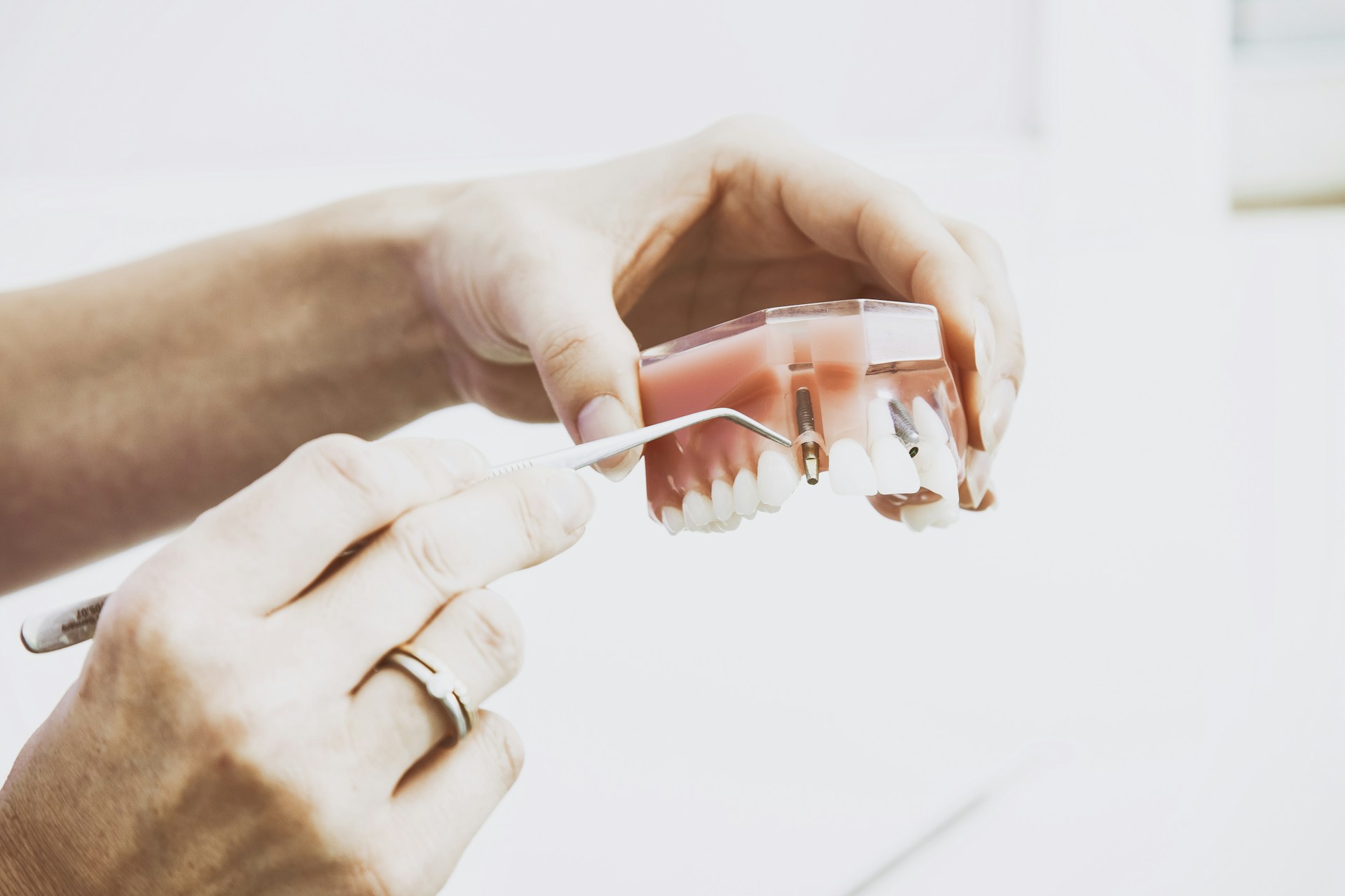SMILE- It costs nothing !!!
How Diabetic Levels Affect Oral Health
Discover how diabetic levels can impact oral health and learn effective tips for maintaining a healthy mouth. Know how to maintain good oral hygiene and prevent diabetic complications in oral health.
4/22/20243 min read
How Diabetes Affects Dental Health
Diabetes is a chronic condition that affects the body's ability to regulate blood sugar levels.
While most people are aware of the impact diabetes has on various organs such as the heart, kidneys, and eyes, they may not realize that it can also have a significant effect on dental health.
Diabetes can increase the risk of developing oral health problems and can make existing dental issues worse.
Understanding how diabetes affects dental health is crucial for diabetic patients to take appropriate measures to care for their oral health.
Increased Risk of Gum Disease
One of the primary ways diabetes affects dental health is by increasing the risk of gum disease, also known as periodontal disease.
High blood sugar levels in diabetic patients can lead to a buildup of plaque, which can cause inflammation and infection in the gums.
Additionally, diabetes weakens the body's ability to fight off bacteria, making it harder to control and eliminate gum disease.
Research has shown that individuals with diabetes are more prone to gum disease and are at a higher risk of developing severe forms of periodontal disease.
Gum disease in diabetic patients can progress more rapidly and be more challenging to treat.
If left untreated, gum disease can lead to tooth loss and other complications.
RELATED : Understanding gum disease
Delayed Wound Healing
Diabetes can also affect the body's ability to heal wounds, including those in the mouth.
This can be problematic for dental procedures such as tooth extractions, dental implant placements, or gum surgeries.
Diabetic patients may experience delayed healing, increased risk of infection, and other complications following dental procedures.
It is essential for diabetic patients to inform their dentist about their condition and any medications they are taking to ensure appropriate precautions are taken before any dental procedures.
Dentists may need to work closely with the patient's healthcare provider to ensure optimal oral health outcomes.
RELATED : What is periodontal disease ?
Dry Mouth
Another common oral health issue associated with diabetes is dry mouth, also known as xerostomia.
Dry mouth occurs when there is a decrease in saliva production, leading to a dry and uncomfortable sensation in the mouth.
Saliva plays a crucial role in maintaining oral health by neutralizing acids, washing away food particles, and preventing the growth of bacteria.
Diabetic patients may experience dry mouth due to high blood sugar levels, certain medications used to manage diabetes, or as a result of nerve damage caused by diabetes.
Dry mouth can increase the risk of tooth decay, gum disease, and oral infections.
It is important for diabetic patients to stay hydrated, practice good oral hygiene, and discuss any symptoms of dry mouth with their dentist.
RELATED : A guide to DRY MOUTH
How Diabetic Patients Should Take Care of Oral Health
While diabetes can increase the risk of dental problems, there are several steps diabetic patients can take to maintain good oral health:
1. Control Blood Sugar Levels
Keeping blood sugar levels within the target range is crucial for overall health, including dental health.
Diabetic patients should work closely with their healthcare team to manage their diabetes effectively.
By controlling blood sugar levels, the risk of developing oral health problems can be significantly reduced.
2. Practice Good Oral Hygiene
Regular brushing and flossing are essential for everyone, but even more so for diabetic patients.
It is recommended to brush at least twice a day with a soft-bristle toothbrush and fluoride toothpaste.
Flossing should be done at least once a day to remove plaque and food particles from between the teeth and along the gumline.
3. Visit the Dentist Regularly
Regular dental check-ups and cleanings are crucial for diabetic patients.
Dentists can detect early signs of gum disease or other dental problems and provide appropriate treatment.
It is generally recommended to visit the dentist every six months, but diabetic patients may benefit from more frequent visits to monitor their oral health closely.
4. Inform Your Dentist About Your Diabetes
It is important to inform your dentist about your diabetes diagnosis and any medications you are taking.
This information will help your dentist tailor your dental treatment plan and take necessary precautions to ensure optimal oral health outcomes.
Your dentist may also collaborate with your healthcare provider to coordinate your overall diabetes management.
5. Manage Dry Mouth
If you experience dry mouth, there are several strategies to alleviate the symptoms.
Drinking plenty of water, using sugar-free gum or lozenges to stimulate saliva production, and using over-the-counter saliva substitutes can help combat dry mouth.
Your dentist may also recommend specific oral care products designed for individuals with dry mouth.
6. Quit Smoking
Smoking can worsen the oral health problems associated with diabetes.
Diabetic patients who smoke should make every effort to quit smoking to reduce the risk of gum disease, tooth decay, and other oral health complications.
Quitting smoking can have a positive impact on both overall and oral health.
Conclusion
Diabetes can have a significant impact on dental health, increasing the risk of gum disease, delaying wound healing, and causing dry mouth.
Diabetic patients need to take extra care of their oral health by controlling blood sugar levels.
By following these guidelines, diabetic patients can maintain optimal oral health and minimize the risk of dental complications associated with diabetes.

Contact Smiles
drdeepi15@gmail.com
Dr. Deepika B.D.S
© 2025 SmileWide Dental. All Rights Reserved.
Have doubts ..?


